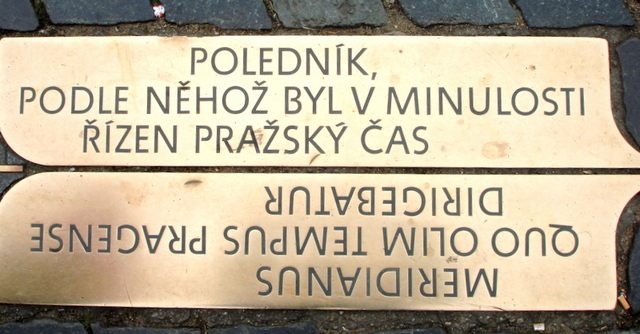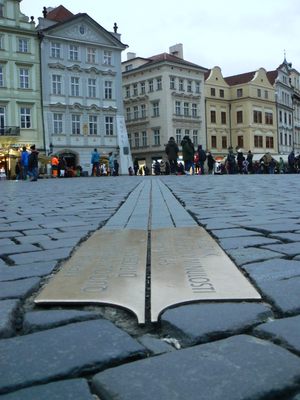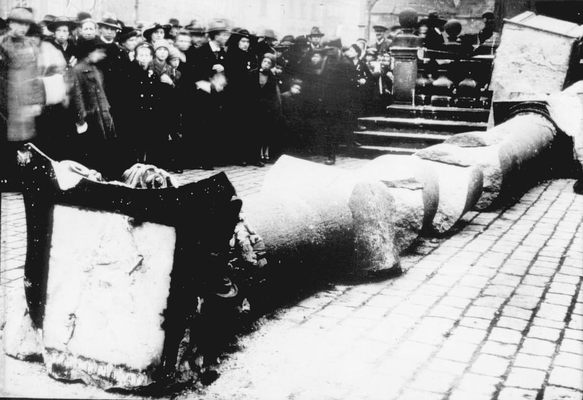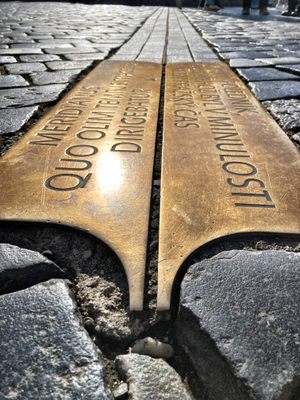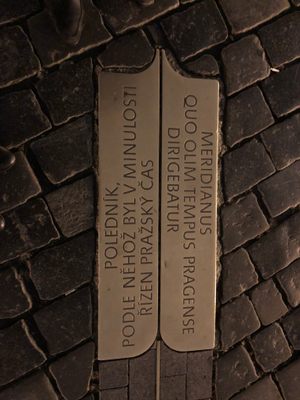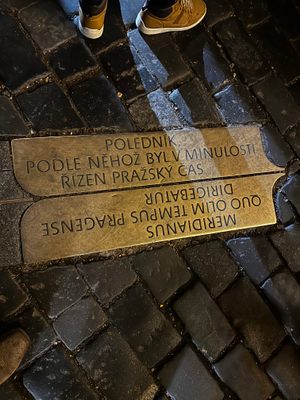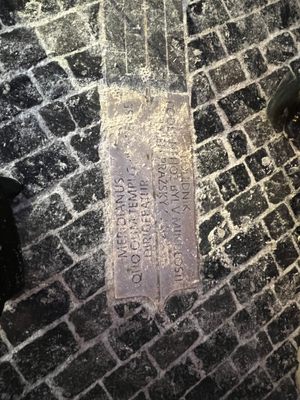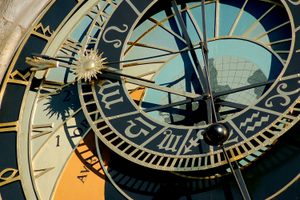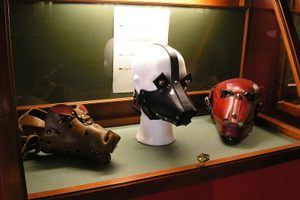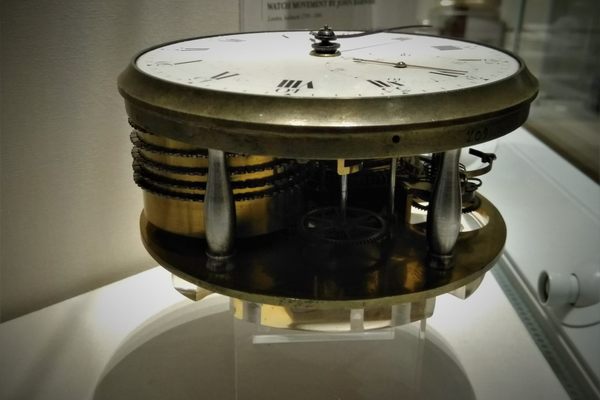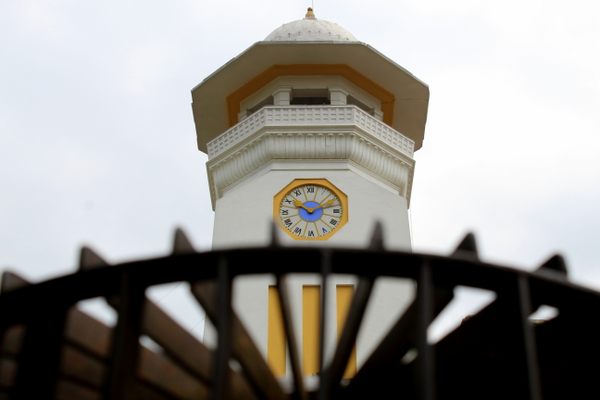About
Because there are many beautiful and fascinating fixtures in Prague’s Old Town Square (e.g. its famously macabre astronomical clock), it’s easy to walk over a historical feature laid right into the cobblestones of the popular meeting place without even realizing it.
Before the technological revolutions that seemingly shrunk the world, Prague, like many other industrial cities, relied on its own local time. To determine high noon, the city used a shadow cast by a Marian column that fell directly upon the meridian of 14°25'17″ East each day.
This occurred from 1652 to 1918, from when the meridian was set into the stones to when the Marian column was torn down by a mob in 1918 during a demonstration against the Habsburg Monarchy.
Though the column has been gone for nearly a century, the meridian line is still visible. Keep an eye out for a thin brass strip flanked by plaques on either side, written in Latin and Czech. Loosely translated into English, they say, “Meridian, according to which time in Prague was determined.” They were placed alongside the time strip in the 1990s.
Though the meridian is no longer a marker of high noon, it’s a subtle reminder of a time when the sun’s shadow was a vital tool in tracking the hours within a day.
Related Tags
Community Contributors
Added By
Published
October 2, 2017

